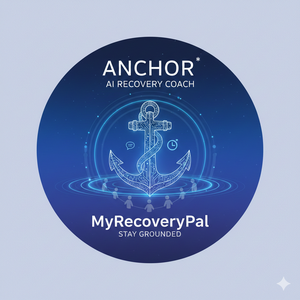
It was my second or third AA meeting — still shaky, still broken — when an old-timer approached me with an unexpected request. “Give me your email,” he said. Not for sponsorship, not for meeting schedules, but for something he called “daily sobriety affirmations.”
Seven years later, those emails still arrive each morning. And the wisdom of Emmet Fox, a name many in addiction recovery have never heard despite his profound influence on AA’s foundation, continues to solidify how I understand prayer, faith, and the actual work of staying sober.
From Church Pews to Meeting Chairs: When Faith Gets Real
I’d always had faith. I was an active church member before my addiction took everything. I believed God was real. But there’s a canyon-wide difference between believing in God and understanding what that actually means for recovery from addiction.
Fox writes: “God is bigger than any problem. God in you is greater than any difficulty that you have to meet.” Reading this in early sobriety hit differently than any sermon I’d heard from a pulpit. This wasn’t abstract theology — this was practical recovery wisdom. When you’re completely broken, when your own mind has led you so far astray that you’ve lost almost everything, trusting that something bigger has a plan becomes your only lifeline.
Prayer as Transformation, Not Transaction
The spiritual awakening that happens in recovery isn’t instantaneous — it’s a daily practice of character change. Fox understood this deeply: “Prayer is the only real action in the full sense of the word, because prayer is the only thing that changes one’s character.”
In my drinking days, prayer was transactional — a cosmic wish list I’d send up hoping for bailouts from consequences I’d created. Recovery taught me what Fox knew: prayer is conversation, not negotiation. It’s asking for guidance, not demanding outcomes. Through daily meditation and prayer practice, I’ve become someone I couldn’t have imagined seven years ago: honest, emotionally present, able to face challenges with confidence instead of fear.
This transformation doesn’t happen overnight. As Fox notes, “The amount of difference may be only very slight for each time that you pray: nevertheless it is there.” Each morning’s meditation, each prayer for guidance rather than control, builds a new character — one day at a time, the same way we stay sober.
The Hidden Foundation of AA’s Spiritual Program
While most people in recovery know Bill Wilson and Dr. Bob, fewer realize how significantly Emmet Fox’s teachings, particularly his interpretation of “The Sermon on the Mount,” influenced early AA philosophy. Fox’s New Thought approach — emphasizing positive thinking, forgiveness, and present-moment living — gave early AA members a framework for understanding the spiritual solution to addiction.
This isn’t about religious conversion. When newcomers struggle with AA’s spiritual aspects, I tell them simply: “Trust that you don’t have control and something greater than you does. After that, you’ll see everything start to fall into place.” It’s about recognizing, as Fox taught, God’s presence “everywhere, in all people and conditions that you meet.”
Making Recovery Tangible Through Daily Practice
The difference between staying sober and truly recovering lies in this daily spiritual practice. Fox writes that we “worship God by really putting our trust in Him instead of in outer conditions, or in fear, or in depression, or in seeming dangers.”
For those of us in addiction recovery, this isn’t abstract philosophy — it’s survival. Every day we choose trust over fear, faith over self-will, we become different people. Not dramatically different all at once, but incrementally, sustainably different.
If you’re looking for a structured way to build this daily practice, I’ve created a 30-day prompted recovery journal that helps translate these spiritual principles into daily action. It’s designed for anyone in recovery — whether from addiction, mental health challenges, or life’s other battles.
The Practical Magic of Spiritual Recovery
Seven years ago, I couldn’t have written these words. I couldn’t have sat with the discomfort of vulnerability or the responsibility of sharing my experience. That person — drinking, desperate, disconnected — is gone. Not because I wished him away, but because daily spiritual practice, the kind Fox wrote about decades before I was born, fundamentally changed who I am.
Recovery from addiction isn’t just about not drinking or using. It’s about becoming someone who doesn’t need to escape reality because you’ve learned, through prayer and practice, that reality — with all its challenges — is where transformation happens.
Fox promised that “God can help you in proportion to the degree in which you worship Him.” In recovery terms: the more we practice spiritual principles, the more our lives transform. Not perfectly, not instantly, but genuinely and permanently.
For anyone struggling with addiction, supporting someone in recovery, or simply seeking change: know that prayer isn’t passive. As Fox understood and AA has proven millions of times over, prayer is the most practical action we can take. It changes us from the inside out, one day at a time, into people who can face life without escape.
That old-timer still sends his daily emails. I still read them. And every morning, I’m reminded that recovery isn’t something we achieve — it’s something we practice, one prayer at a time.
For more stories about addiction recovery, sobriety, and reducing stigma around mental health and substance use disorders, follow Normalize Sobriety. Recovery is possible, and you’re not alone.

Comments (0)
Login to leave a comment.
No comments yet. Be the first to share your thoughts!